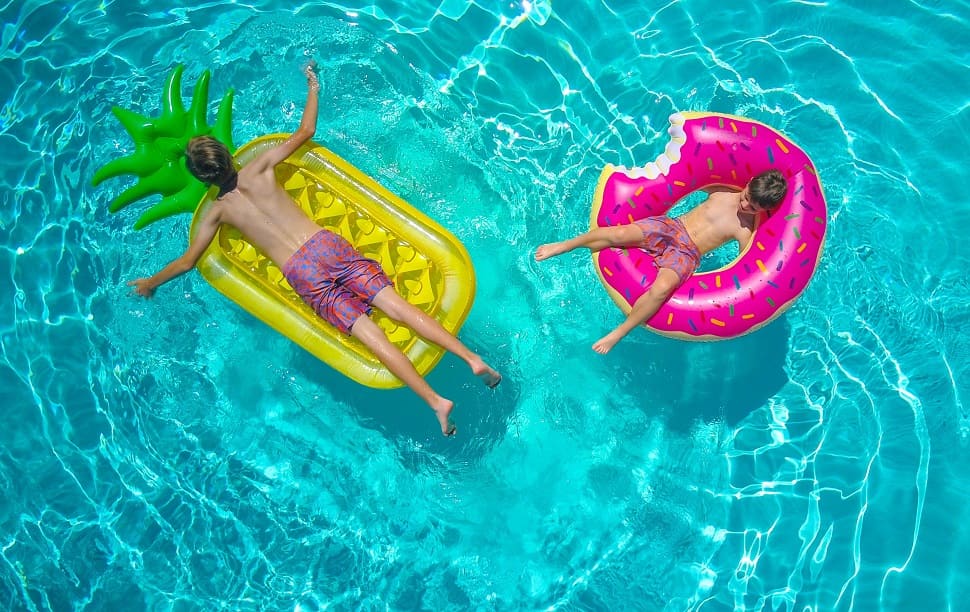
Kids must find sporting activities they enjoy, and that challenge them, which is why trying various sporting activities is essential. Being a multi-sport athlete will help to challenge not only their body but also their brain. It may also keep them more engaged… Which leads to more FUN! The number one reason kids want to quit swimming is “because it just isn’t fun anymore.” Lack of fun could be for a variety of reasons:
Do your best as a parent to keep swimming fun! Let the coaches talk with them about their level of performance, and you just be there to support them. Avoid comparing them to their teammates or competitors, as we all develop at different rates. Instead, help teach them to set realistic and reasonable goals so they can reasonably measure their improvement. Remind them to focus on controlling only those things they can control… most importantly, their attitude and effort. Lastly, encourage them to express gratitude towards their coaches and teammates; a grateful and positive attitude goes a long way!
Of course, thousands of kids can push through the rigor and the monotony of swim practices because they recognize their hard work will pay off. Other factors we see that lead to swimmers quitting the sport include their social life or academic life may be suffering. Practice times may be very early in the morning or late in the evening, leaving your swimmer critically sleep deprived. This lack of sleep can seriously impact their level of performance in the classroom. They also may need more time to complete their schoolwork. Or they may want to go to a Friday night football game or sleepover, but their practice schedule doesn’t allow it. That can leave kids feeling left out, sad, and lonely.
One of the main reasons parents put their kids in a sport is because it is a perfect training ground to learn the skills of time management, goal setting, communication, resilience, and discipline. Support them when they struggle with balancing academics, sports, and social life; all three are essential for developing well-rounded young adults. Show them your tricks for managing your time – planners and to-do lists – and encourage them to communicate with their teachers, coaches, and friends about when to prioritize certain things.
Lastly, their self-image can be a significant factor in whether they stay in the sport of swimming. Standing around in a skimpy swimsuit for hours can be daunting for adolescents. Introducing the jammer suit for boys was a game-changer in keeping boys in the sport! Going from a small speedo to a suit down to the knees helped boys feel more comfortable. There isn’t much you can do as a parent in this instance… they have to wear a suit, but just be aware that boys and girls may start to feel more self-conscious as they hit puberty. Remind them never to make fun of others who look different than them in their swimsuits…, and treat others kindly.
Even if your swimmer can rock their speedo, they may get teased away from the pool for their swimmer appearance. Some people think Chlorine, but in actuality, chloramines are to blame. Chloramines can negatively affect their hair and skin, making it brittle and dry. After swimming, they can even walk away from a shower still smelling like chloramines! Swimmers that swim in bad water complain of yellowing teeth because of the water’s harsh chemicals (alkaline). Instead of letting vanity get in the way of a healthy and athletic lifestyle, find a good shampoo/conditioner (containing Vitamin C) and lotions to which your child’s hair and skin respond positively. Have your athlete shower before getting in and out of the pool; showering before will actually protect their body. Teach them early to take care of their skin and hair. Pack a mouthwash for after practice and swish away the residual alkaline.
Question the operator at the pool your son or daughter uses daily; ensure they use breakpoint chlorination. Higher levels of free chlorine ~6ppm are necessary to prevent chloramines from taking over the water and off-gassing (causing poor [indoor and outdoor] air quality). Chloramines (which are what cause skin irritation, your skin to smell, etc.) come from insufficient free chlorine in the water. Ask your pool operator if they run the pool with a zero saturation index daily. Pools running liquid chlorine are much more susceptible to running outside the saturation index, causing high levels of alkaline (known to make teeth yellow). At the University of Florida’s O’Connell Center Pool, their pool operator runs breakpoint chlorination and a 0 saturation index; they run the best water and indoor air quality in the country; press your son or daughter’s pool operator to educate themselves and do the same…
In short, with all the issues that can tempt your swimmer to quit, you can help them through. You just have to communicate with them and encourage them to overcome the challenges and road bumps…. Sport IS a microcosm of life; they will be better off in the future for learning these valuable life lessons as a young adult.